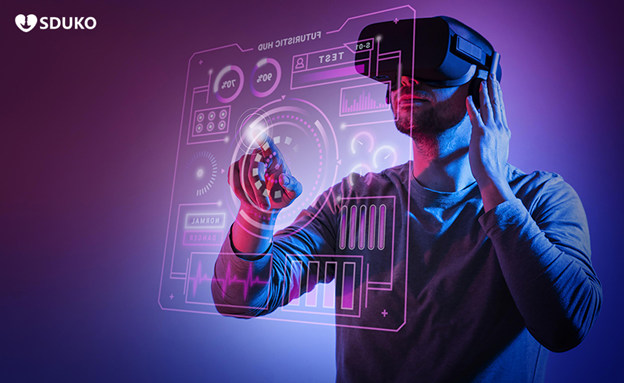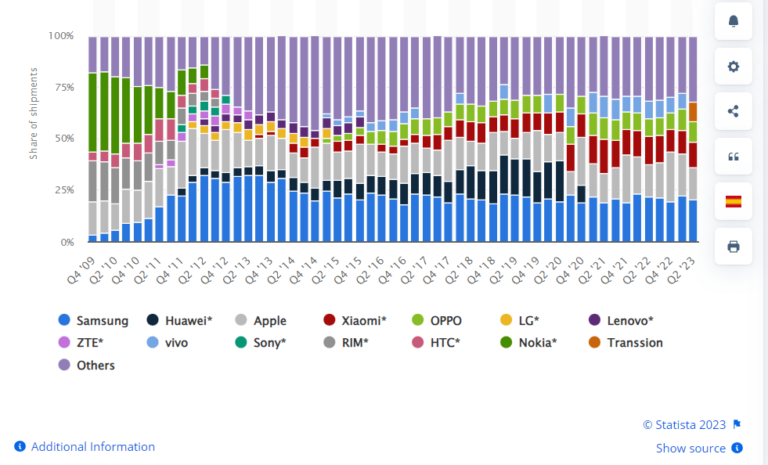Digital Marketing 2.0: The Role of Tech in Future Campaigns
The digital marketing landscape is evolving at a breakneck pace, driven by rapid technological advancements and changing consumer behaviors. As we look towards the future, it’s clear that the next generation of digital marketing, often referred to as Digital Marketing 2.0, will be profoundly shaped by emerging technologies. From artificial intelligence and machine learning to augmented reality and blockchain, these innovations promise to transform how brands engage with their audiences. This article explores the role of technology in shaping the future of digital marketing campaigns and highlights key strategies for leveraging these advancements.
The Impact of Emerging Technologies
1. Artificial Intelligence (AI) and Machine Learning
Artificial intelligence and machine learning are at the forefront of digital marketing innovation. These technologies enable marketers to analyze vast amounts of data, predict consumer behavior, and personalize marketing efforts at scale.
– Personalization: AI-driven algorithms can analyze user data to deliver highly personalized content and recommendations. This enhances the user experience and increases engagement and conversion rates.
– Predictive Analytics: Machine learning models can predict future consumer behavior based on historical data. This allows marketers to anticipate trends, optimize campaigns, and allocate resources more effectively.
– Chatbots and Virtual Assistants: AI-powered chatbots and virtual assistants provide instant, personalized customer support. They can handle a wide range of queries, improving customer satisfaction and freeing up human resources for more complex tasks.
2. Augmented Reality (AR) and Virtual Reality (VR)
AR and VR technologies are transforming the way brands interact with consumers, offering immersive experiences that were previously unimaginable.
– Interactive Experiences: AR and VR enable brands to create interactive and engaging experiences. For example, virtual try-ons for fashion and beauty products allow customers to see how items will look on them without physically trying them on.
– Enhanced Storytelling: VR can immerse users in branded environments, enhancing storytelling and creating memorable experiences that foster deeper connections with the brand.
– Event Marketing: Virtual events and experiences are becoming more prevalent, allowing brands to reach global audiences without the logistical constraints of physical events.
3. Blockchain Technology
Blockchain technology is poised to revolutionize digital marketing by enhancing transparency, security, and efficiency.
– Transparency and Trust: Blockchain can provide transparency in digital advertising by verifying the authenticity of ad impressions and clicks. This reduces fraud and builds trust between advertisers and consumers.
– Data Privacy: Blockchain enables secure and decentralized data storage, giving consumers greater control over their personal information. This aligns with increasing consumer demand for privacy and data protection.
– Loyalty Programs: Blockchain can streamline loyalty programs, making them more secure and efficient. Consumers can easily track and redeem rewards, enhancing their overall experience.
Key Strategies for Leveraging Technology in Future Campaigns
1. Omnichannel Marketing
An omnichannel approach ensures a seamless and consistent experience across all touchpoints, whether online or offline.
– Integrated Campaigns: Develop integrated marketing campaigns that leverage multiple channels, including social media, email, search, and display advertising. Ensure messaging is consistent and cohesive across all platforms.
– Cross-Channel Tracking: Use tools and technologies to track customer interactions across channels. This provides a holistic view of the customer journey and helps optimize marketing efforts.
– Unified Customer Profiles: Create unified customer profiles that consolidate data from various sources. This enables more accurate targeting and personalization. This has helped London escort services improve their customer experience.
2. Data-Driven Marketing
Data is the backbone of effective digital marketing. Leveraging big data and analytics allows marketers to make informed decisions and optimize campaigns.
– Customer Insights: Use data analytics to gain deep insights into customer behavior, preferences, and pain points. This information can inform targeted marketing strategies and personalized content.
– Campaign Optimization: Continuously monitor and analyze campaign performance data to identify what’s working and what isn’t. Use this information to refine strategies and improve ROI.
– A/B Testing: Implement A/B testing to compare different versions of ads, emails, or landing pages. Use the results to determine the most effective approach.
3. Personalization and Customization
Consumers expect personalized experiences. Tailoring marketing efforts to individual preferences can significantly enhance engagement and loyalty.
– Dynamic Content: Use AI to create dynamic content that adapts to each user’s preferences and behaviors. This can include personalized emails, product recommendations, and website content.
– Segmentation: Segment your audience based on demographics, behavior, and interests. Develop targeted campaigns that resonate with each segment.
– Customer Journeys: Map out customer journeys to identify key touchpoints and deliver relevant content at each stage. This helps guide consumers through the sales funnel.
4. Content Marketing and SEO
High-quality content remains a cornerstone of digital marketing. Combining content marketing with advanced SEO techniques ensures visibility and engagement.
– Quality Content: Produce high-quality like Hyderabad call girls, valuable content that addresses the needs and interests of your audience. This can include blog posts, videos, infographics, and podcasts.
– Voice Search Optimization: With the rise of voice search, optimize content for voice queries. This involves using natural language and focusing on long-tail keywords.
– Visual and Interactive Content: Incorporate visual and interactive elements such as videos, infographics, and quizzes to enhance engagement and shareability.
5. Social Media and Influencer Marketing
Social media continues to be a powerful tool for reaching and engaging audiences. Leveraging influencer marketing can amplify your brand’s reach.
– Platform-Specific Strategies: Develop tailored strategies for each social media platform. Understand the unique features and audience preferences of platforms like Facebook, Instagram, TikTok, and LinkedIn.
– Influencer Partnerships: Collaborate with influencers who align with your brand values and have a genuine connection with their audience. This can enhance credibility and reach. Many Cardiff escorts offer this service and it can be a great way to increase brand awareness and engagement.
– User-Generated Content: Encourage users to create and share content related to your brand. This builds community and trust while providing authentic content.
Embracing Ethical and Sustainable Practices
As technology advances, it’s essential to prioritize ethical and sustainable practices in digital marketing.
1. Data Privacy and Security
Respecting data privacy and ensuring security is paramount in the digital age.
– Compliance: Ensure compliance with data protection regulations such as GDPR and CCPA. Obtain explicit consent before collecting and using personal data.
– Transparency: Be transparent about data collection and usage practices. Clearly communicate how data is used and give users control over their information.
– Security Measures: Implement robust security measures to protect user data from breaches and unauthorized access.
2. Ethical AI and Automation
As AI and automation become more prevalent, it’s crucial to use these technologies ethically.
– Bias and Fairness: Ensure AI algorithms are free from biases that could lead to unfair or discriminatory outcomes. Regularly audit and adjust algorithms to maintain fairness.
– Human Oversight: Maintain human oversight of automated processes to ensure they align with ethical standards and business goals.
– Transparency: Be transparent about the use of AI and automation in marketing practices. Clearly explain how these technologies are used to enhance customer experiences.
3. Environmental Sustainability
Incorporate sustainable practices into digital marketing to reduce environmental impact.
– Green Hosting: Use eco-friendly web hosting services that prioritize renewable energy and carbon offsetting.
– Sustainable Content: Create digital content that minimizes resource consumption. Optimize images and videos to reduce data usage and energy consumption.
– Corporate Responsibility: Promote and support sustainability initiatives within your organization and industry. Communicate your commitment to environmental responsibility to your audience.
Takeaway…
The future of digital marketing is intertwined with technological advancements that promise to revolutionize how brands connect with their audiences. By leveraging AI, AR/VR, blockchain, and other emerging technologies, marketers can create more personalized, engaging, and efficient campaigns. However, it’s essential to balance innovation with ethical and sustainable practices to build trust and ensure long-term success. Embracing these strategies will position businesses at the forefront of digital marketing 2.0, driving growth and fostering meaningful connections with consumers.




